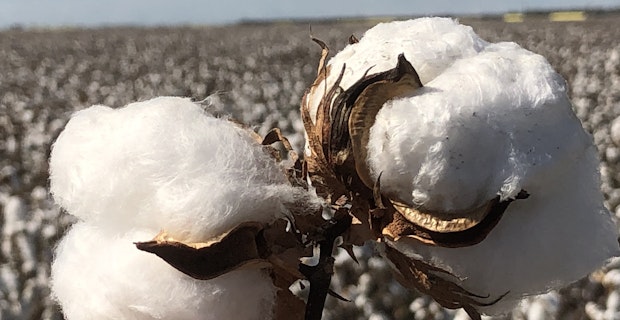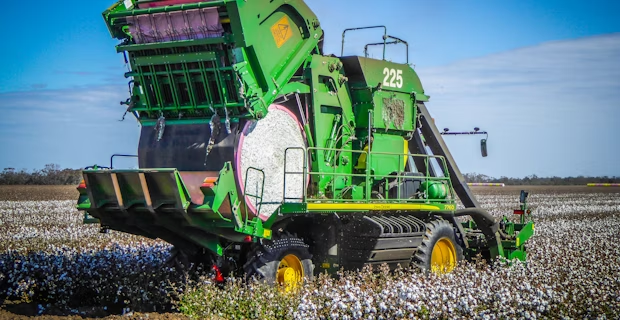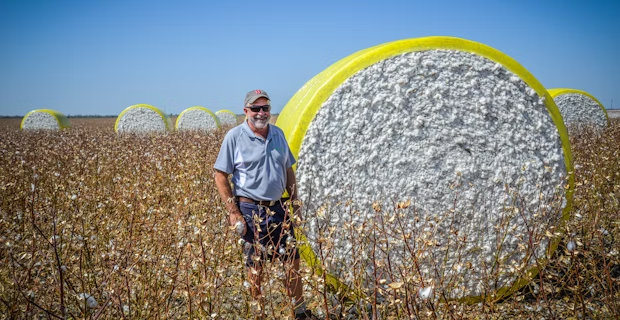The textile and apparel sector is increasingly conscious of its sustainability ‘footprint’. And as such, sector companies—particularly brands and retailers—are increasingly demanding greater transparency from their suppliers. In the cotton sector, the Better Cotton Initiative has emerged as the largest cotton sustainability programme in the world, now licensing over 22% of global cotton production. BCI’s requirements for licensed farms include demonstrating they minimize the harmful impact of crop protection practices, care for soil health, preserve fibre quality and operate an effective management system, among other criteria.
Agworld President North America Zach Sheely: “Growing up on a cotton farming business (among other crops) in California, I’ve always been involved in the decision-making processes throughout our season. All growers try to limit the inputs for each crop in order to maximize the profit, but for cotton growers in particular there are strong additional reasons: sustainability.”

Producing cotton according to the BCI guidelines means that cotton growers have an additional reporting burden in order to prove that they adhere to these principles. Zach: “Growers that use Agworld, like my family, have found that they have been able to minimize this reporting burden. In our case, being BCI licensed has also brought us additional opportunities, with The North Face for example.”
At Agworld, one of the goals of our data platform is to help growers produce their crops as efficiently as possible. Standardized reporting for certification purposes is one of those efficiencies that gets achieved. One Agworld user that grows cotton just told us the other day: “I need to create a number of different reports for my BCI licensing; by using Agworld to track every operation on my fields, I have made this part of the reporting criteria a lot easier and faster to fulfill.”
BCI Head of Field Performance & Large Farm Countries Scott Exo recently told us: “Supplying inputs data is only one of the steps that cotton growers have to take for their BCI certification, but it’s one that can either be really easy or really hard, depending on how the grower keeps records. By using a cloud-based platform that standardizes data and can provide an overview of total amounts of nutrients and other inputs provided, the process of providing accurate data to BCI becomes a lot easier.”

Mr Exo continues: “Another advantage of using a farm data platform with standardized data, like Agworld, for us and our growers is that it can provide us with a multi-year overview of the inputs used to grow cotton. These multi-year overviews are important to show trends and prove that we, as an industry, are moving in the right direction when it comes to input-usage, caring for soil health and the environment in general, and using the land responsibly.”
Zach Sheely adds: “Agworld is used by cotton growers in the US, South Africa and Australia; all countries that are part of the BCI. In Australia for example, where more than 85% of the agronomists use Agworld to create cropping plans and recommendations, Agworld is the standard for growers to supply input data for the myBMP (Best Management Practices) program operated by Cotton Australia[1].
Search product labels with Agworld DBX
A reliable source of plant protection chemical label data so that you can find the information you need for managing weeds, pests and diseases in a safe and effective way. Download product labels and SDSs
Powered by Greenbook
Creating a cropping plan through Agworld’s templated system is quick and easy for agronomists and growers; these plans are also easily converted to recommendations, work orders and farm records throughout the season, without the need of entering all the data again. By having agronomists, growers and farm workers all connected on the same data platform, the risk of miscommunication is minimized, record-keeping is automated and simplified as much as possible, and errors in farm data can be prevented.

Zach concludes with: “The global cotton industry is leading the way in regard to self-regulation through the BCI programme and I expect many other industries to follow the same path. It’s only by focusing on transparency and a sense of doing the right thing for the customer that growers will be able to avoid poor regulation and over-standardization. I’m proud that we at Agworld are able to offer growers, and indeed entire industries, a way to simplify this process and prevent them from being burdened with extra paperwork just for doing the right thing.”
[1] Through a formal benchmarking agreement between BCI and Cotton Australia, farms that reach myBMP certification can opt in to BCI and market Better Cotton.




